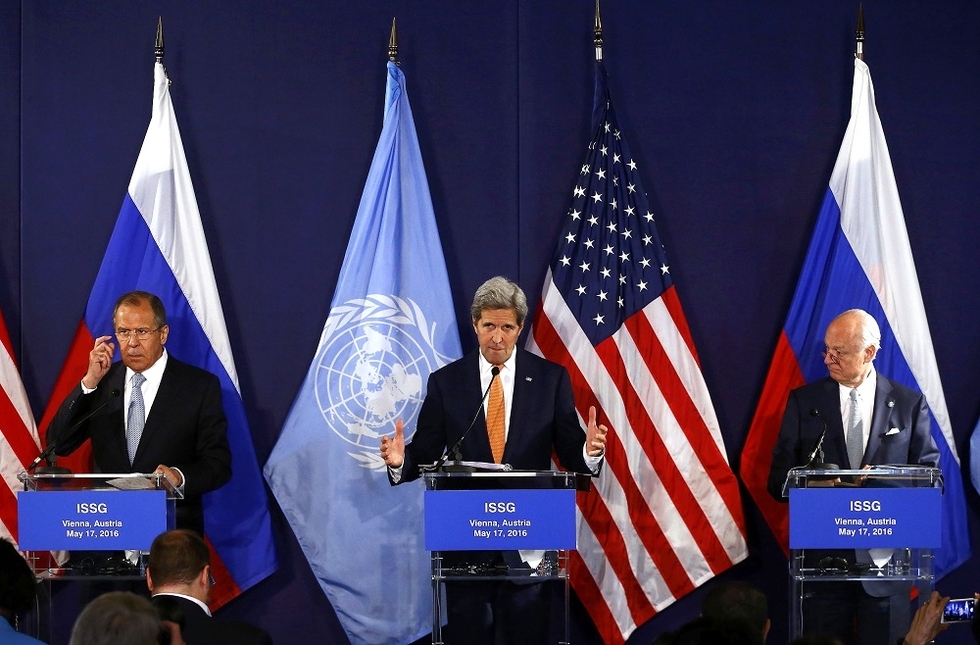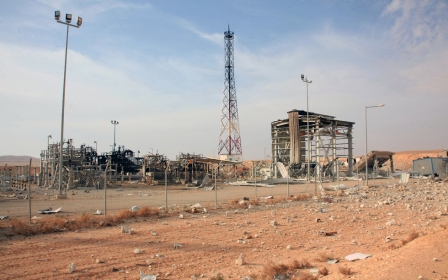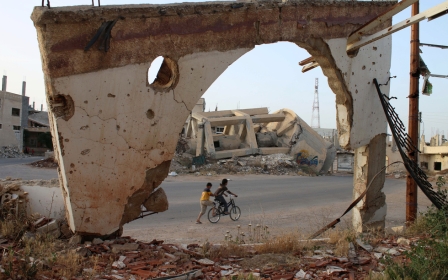Syria truce to be strengthened but no fresh peace talks announced

World powers have agreed to strengthen the truce in Syria and plough on with peace negotiations, US Secretary of State John Kerry said on Tuesday.
However, no new date for fresh peace talks has been set and Kerry has pushed back a 1 August deadline, originally set for Syria's warring parties to agree on a framework for a political transition which the US insisted must aim to remove Syrian President Bashar al-Assad from power.
"The August date is not a drop date, it's a target date, and we all recognise that if we make significant progress and we're moving we will respect that process,” Kerry said.
Kerry’s comments follow a day of negotiations in Vienna between world and regional powers and the UN peace envoy Staffan de Mistura.
Following the meeting, Russian Foreign Minister Sergey Lavrov told reporters that Moscow did not support Assad personally but that it was determined to work with the Syrian army to fight "terrorists," a term that Russia has long used to describe a range of groups including Islamic State, al-Qaeda affiliate Nusra Front and some US-backed rebels.
"We don't support Assad, we support the fight against terrorism," Lavrov told reporters after a meeting of the International Syria Support Group in Vienna. The ISSG is a Syria peace negotiating form set up in November last year and made up of 17 countries.
"On the ground, we don't see any more real and efficient force than the Syrian army, even given all its weaknesses,” Lavrov added.
While the Russians announced earlier this year that they would scale back their involvement on the ground, it has emerged that they have begun constructing a large military base in Palmyra.
The American School of Oriental Research's Cultural Heritage Initiative on Tuesday posted satellite pictures showing that construction had begun on the edge of the city. The Syrian army, backed by Russian air power, recaptured Palmyra from Islamic State in March.
A truce was penned in February, but fighting between the government and the opposition has continued to rage in parts of the country as has the battle with UN-designated "terrorist" groups, including the Islamic State and al-Qaeda’s Syria affiliate the Nusra Front, which were excluded from the UN deal.
On Tuesday, the powerful Jaish al-Islam group clashed with rival factions led by al-Qaeda's Syrian affiliate in the opposition stronghold of Eastern Ghouta near Damascus. More than 50 fighters and two civilians were killed.
The Saudi-backed faction is one of the key rebel players in the High Negotiations Committee, which represents Syria's opposition in UN-backed peace talks.
But Jaish al-Islam has recently been challenged by Faylaq al-Rahman and Jaish al-Fustat, both led by al-Nusra Front, Syria's al-Qaeda affiliate.
Residents and local officials have tried to mediate an end to the clashes and have staged protests urging the rival forces to stop the bloodletting to no avail.
To strengthen the ceasefire, Kerry said that the ISSG had agreed to penalise parties found violating the true, and could if needed ban any side from the peace talks if it failed to maintain the truce.
"We have agreed consequences for any side's actions that have an agenda other than that of trying to reach an agreement and trying to reach peace," Kerry said.
Kerry also said that the ISSG had agreed to pressure the UN to deliver aid to reach besieged areas in Syria, with the government and the opposition both accused of using hunger as a weapon against civilians.
"Starting on 1 June, if the UN is denied humanitarian access to any of these designated areas, the International Syria Support calls on the World Food Programme to immediately carry out a programme for air bridges and air drops to all of those areas in need," Kerry said.
Last week, the government was heavily blamed after it stopped a Red Cross aid convoy from entering the besieged city of Daraya, and then reportedly bombed the area.
The French foreign minister said that world powers would keep pushing to set up a date for further negotiations, saying that he hoped these could happen as early as June.
"The objective remains the political process. We want [UN Special Envoy] Staffan de Mistura to gather the negotiators as soon as possible and we have fixed ourselves an objective of the start of June if possible," Foreign Minister Jean-Marc Ayrault told reporters.
De Mistura meanwhile told reporters that the new date was an issue “still waiting for some type of concrete outcome,” but he warned that the international community cannot wait for too long and that it was key to keeping momentum.
According to De Mistura, more than 400,000 people have been killed since the Syria conflict erupted more than five year ago. Millions more have been internally displaced or have become refugees in neighbouring countries and Europe.
New MEE newsletter: Jerusalem Dispatch
Sign up to get the latest insights and analysis on Israel-Palestine, alongside Turkey Unpacked and other MEE newsletters
Middle East Eye delivers independent and unrivalled coverage and analysis of the Middle East, North Africa and beyond. To learn more about republishing this content and the associated fees, please fill out this form. More about MEE can be found here.




